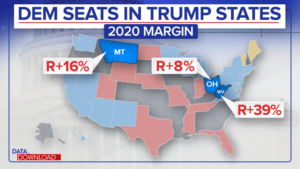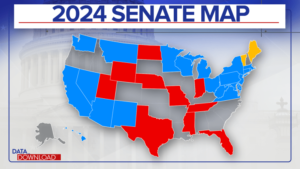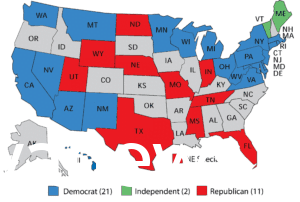Georgia Senate Race: As the political landscape in the United States continues to evolve, one state that consistently finds itself in the spotlight is Georgia. The Georgia Senate Race of 2024 is already shaping up to be a pivotal moment in the nation’s politics. Here are 11 interesting facts that highlight the key dynamics and players in this high-stakes competition.

1. Open Seat Drama:
One of the most intriguing aspects of the 2024 Georgia Senate Race is the open seat left by the retiring incumbent. This has created a competitive environment, as both major parties see an opportunity to gain or retain control.
2. Changing Demographics:
Georgia’s demographics have been evolving, with an increasing number of young and diverse voters. The candidates will need to appeal to this changing demographic to secure victory, making issues such as education, healthcare, and social justice central to their campaigns.
3. Battleground State Status:
Georgia has transformed into a battleground state, a significant shift from its historically conservative leanings. The closeness of recent elections has only intensified the focus on the state, and the 2024 Senate Race will be closely watched as a barometer of the state’s political direction.

4. Role of Stacey Abrams:
Stacey Abrams, a prominent Democratic figure, continues to play a crucial role in Georgia politics. Her efforts to mobilize voters and fight for voting rights have made her a key player in the Democratic strategy for winning the Senate race.
5. GOP’s Push for Unity:
The Republican Party is making a concerted effort to unite its factions and present a strong front in the Senate race. With internal divisions on issues such as immigration and healthcare, the GOP will need to navigate these challenges to secure victory.
6. Influence of PACs and Super PACs:
Political Action Committees (PACs) and Super PACs are expected to have a substantial influence on the Georgia Senate Race. The influx of money from these groups will shape the narrative, drive advertising campaigns, and impact voter perceptions.
7. National Issues Take Center Stage:
While the race is a state-level election, national issues such as climate change, gun control, and healthcare will undoubtedly take center stage. The candidates will need to articulate their positions on these broader topics while addressing specific concerns of Georgia voters.
8. Impact of Redistricting:
The ongoing redistricting process in Georgia will have a direct impact on the Senate race. Changes in district boundaries can favor one party over the other, adding an extra layer of complexity to the already competitive race.

9. Digital Campaigning:
The use of digital platforms and social media in political campaigns has become increasingly prevalent. Candidates will need to harness the power of online engagement to connect with voters, especially the younger demographic that tends to be more active on these platforms.
10. Rural-Urban Divide:
Georgia, like many other states, grapples with a rural-urban political divide. The candidates must formulate policies that resonate with both rural and urban voters, addressing the unique challenges each community faces.
11. Voter Turnout Challenges:
Historically, Georgia has faced challenges with voter turnout, particularly in minority communities. Efforts to overcome these obstacles and ensure widespread participation will be crucial for both parties in determining the outcome of the Senate race.
Conclusion:
The Georgia Senate Race of 2024 is poised to be a microcosm of the broader shifts occurring in American politics. With an open seat, changing demographics, and influential figures shaping the narrative, this race will not only impact Georgia’s representation but will also have repercussions on the national stage. As the candidates gear up for fierce competition, the nation will be closely watching to see which party will emerge victorious and shape the future trajectory of the Peach State’s politics.
WRITTEN BY ALEX

